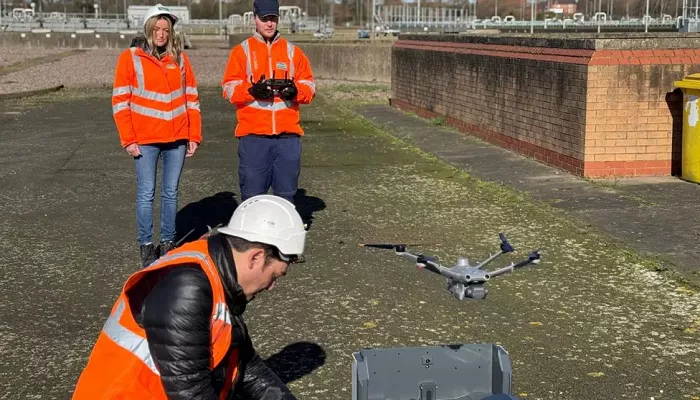Severn Trent Water, based in Coventry, has suggested that drones could soon play a key role in detecting water leaks more quickly and efficiently. The company, which already uses drones to locate leaks in hard-to-reach areas, says that proposed changes in drone regulations could significantly enhance their ability to tackle the issue.
Currently, strict laws require drone operators to maintain direct visual contact with the drones at all times. However, the Civil Aviation Authority (CAA) is expected to relax these restrictions later this year, allowing drones to be flown beyond the operator’s line of sight for longer distances.
Jonny Bevan, Severn Trent’s drone safety officer, explained that these new rules could enable drones to be deployed more strategically. “If we’ve got drones strategically placed across our network, we can fly them out from the nearest location, which will help us meet our leakage reduction targets,” Bevan said.
The drones are equipped with infrared cameras to detect drops in water temperature, making them more effective in spotting leaks even in remote or inaccessible locations. Severn Trent aims to reduce leaks by 15% this year, with a long-term goal of halving the amount of water lost to leaks by 2045.
Currently, the company is testing a waterproof “drone in a box” that can be remotely controlled. Duncan Turner, the company’s drone lead, emphasized that the technology will improve operational efficiency and, ultimately, provide better value for customers.
Severn Trent serves a large portion of the West Midlands, including Staffordshire, Shropshire, Warwickshire, and Worcestershire, and is committed to cutting water losses across its network.


